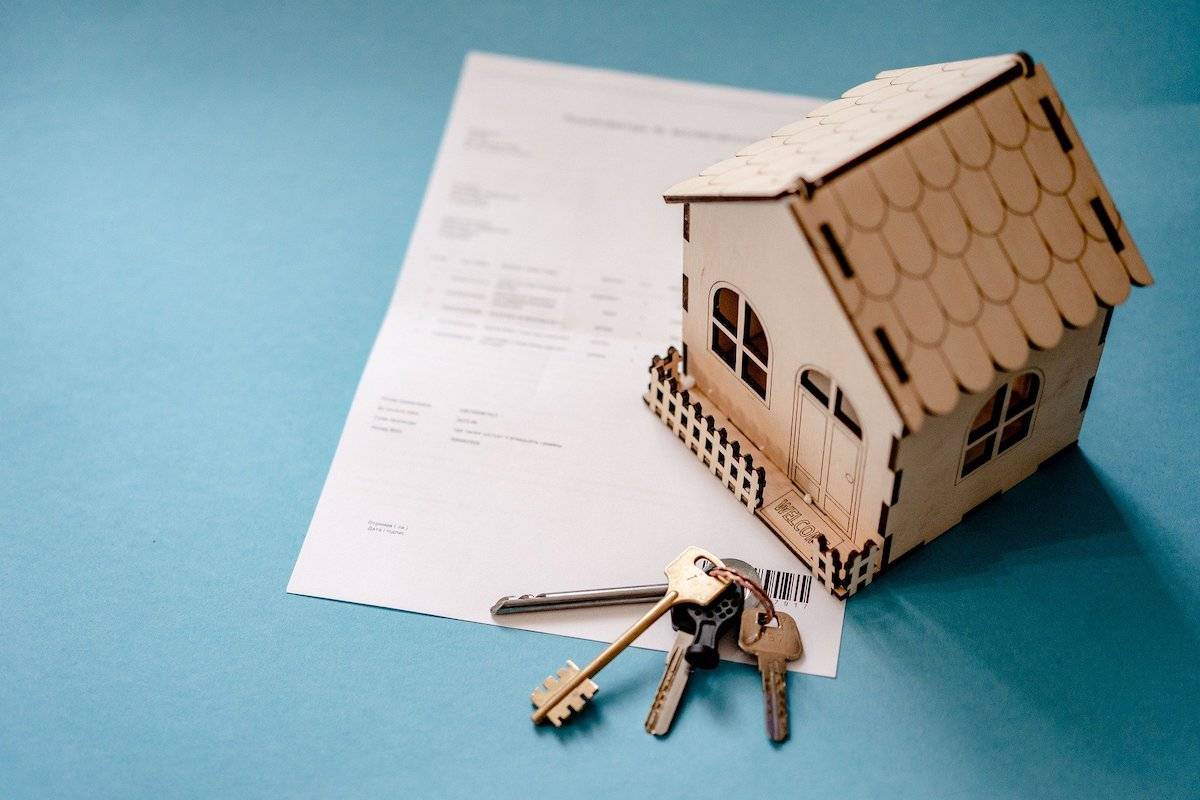
If you want to diversify your investment portfolio, real estate is an excellent choice. The advantages of investing in real estate properties can be significant. However, it’s crucial to ensure that you purchase the right one since your chosen investment property can either make or break your success.
So, whether you’re a new real estate investor or a veteran in the industry, it’s essential to keep an eye out for anything that may cause you problems in the long run. To make a well-informed choice, you may click here to get help from professionals or keep the following red flags in mind:
- Foul Odors
Mold isn’t the only factor that could contribute to foul odors inside any investment properties. A rotten egg smell may indicate a major problem with your plumbing system.
If you smell gas, you may call the local gas company to investigate the property’s pipes for leaks. Even the smell of a dead rat must raise a red flag since it means there’s a possibility of pest infestation, which is a big no for investment properties.
- Foundation Issues
Another red flag to avoid when purchasing your first investment property is foundation issues. Remember that you shouldn’t miss inspecting the crawlspace or the basement on any property.
Collapsed walls, cracks in the foundation, or water leaks in the basement are some of the things that are costly to repair. So, better check for such issues before you sign the deal.
- Questionable History Of The Property
Any history of extensive repairs is a warning sign for investors as they can be costly once they need to be fixed in the future. If the seller’s disclosure packet doesn’t provide enough details on the subject, it’s wise to ask real estate agents for more details.
When investing in any kind of property, you might want to know about its surrounding area and former inhabitants. Several buyers are less likely to take the property if it was a site of an incident or a crime.
You should also check the market history of the property. It can be a red flag if it has been sitting on the market for a long time. There’s a reason why it hasn’t been sold yet, and as an investor, you should know the real reason behind it before you finalize your decision.
In addition, don’t purchase a property with a history of numerous homeownership turnover. It is because there might be a problem with the property that its previous homeowners decided to sell it. To know more about the property’s homeownership turnover, check online or get assistance from professionals.
- Faulty Electrical System
Dangerously wired electrical systems should be taken seriously, regardless of how willing you are to invest in a property, for it may not only cause a detrimental threat to your property but to you as well. For this reason, ensure to test the property’s electrical capability before you agree to purchase it.
Plugging in a number of appliances simultaneously should provide you with an idea about the capacity of the investment property to produce energy safely. To examine the electrical system thoroughly, a professional electrical technician may help you.
- Structural Issues
Even if it’s difficult to spot the structural issues of an investment property, there are some signs that you can check. Look for any cracks in the brickwork or plaster because they might be a sign of something serious.
For instance, cracks above the windows or doors might indicate failed lintels or some structural issues that could be expensive to repair in the future. Some signs of structural issues include uneven floors, leaning walls, and roof leaks.
- Cosmetic Fixes
Quick fixes can make things look better than they seem. However, they can be a sign that you won’t be able to get what you pay for.
Claim up to $26,000 per W2 Employee
- Billions of dollars in funding available
- Funds are available to U.S. Businesses NOW
- This is not a loan. These tax credits do not need to be repaid
For example, if you see a freshly painted wall, it can be a sign that the previous homeowners are hiding something. More often than not, a freshly painted wall or ceiling might mean that there was water damage or mold problems.
A beautiful, fixed-up interior may also distract you from the problematic exterior. Therefore, if you don’t want to deal with the inconvenience, be wary of the property’s cosmetic fixes.
- Locked Doors
If there are locked doors in your preferred investment property, never agree to buy it unless the owner gives you access. There might be something that the owners don’t want you to discover or see. In some instances, it’s as innocent as the owners don’t want you to see their valuables or storage. However, other owners might be hiding damage.
Buying real estate properties must never be a gamble. Therefore, you should ensure you have all the information before you agree to sign the contract.
- No Permits For Work Done
It’s recommended to review the 3R report of the property, it provides information about the work done by the owners to improve the property. For example, if the seller claims to add a new deck, it should be in the report. If it isn’t, there’s a chance that the deck was built against the code and might be unsafe.
Although there are aspects where a permit isn’t necessary, like changing windows or redoing a roof, it’s still crucial to check for the permits of major electrical and structural work. This way, you’ll know whether or not the work has been completed properly and according to the law.
- Bad Floor Plan
Various design issues can make it hard to rent out properties. For instance, if you have a three-bedroom property, but one of the bedrooms is very small, it can be a turnoff to your potential tenants who expect full-sized rooms.
Small bathrooms or kitchens can be another issue. Few closets in a house may drive potential renters away. Although a bad floor plan isn’t often terrible, it may still limit the property’s income potential.
- Listing Photos And Descriptions That Don’t Match With The Reality
Creative photography can quickly disguise problems you’d never know existed until you step foot inside the house. Be sure that you always do an in-person walk-through before putting down an offer to see the property’s condition, especially with your first few real estate transactions.
It would be more skeptical if the listing has no photos or limited and missing exterior photos. Remember that just because the home’s exterior looks orderly, it doesn’t mean the inside is in good shape.
- Seller Is Pushy About The Sale
If you encounter a seller who seems fearful that you won’t make a good offer or you’ll back out of the sale, it’s an indication that you’re dealing with a serious problem. It goes double for anyone who is secretive about the parts of the property by covering up the walls with heavy curtains or refusing you access to particular areas. There might be damage from fire or water they’re trying to hide.
The best thing you can do to examine the property thoroughly is to hire an inspector. They can help you negotiate the price down based on what you find out from the inspection results.
- Amateur Workmanship
Another huge red flag to avoid is amateur workmanship. If an unlicensed contractor was working on the property and didn’t know what they were doing, the outcome might be harmful and unstable. Additionally, if they worked on electrical or plumbing, it can result in insurance and safety issues.
Keep in mind that bad plumbing and electrical work may result in issues like fires or pipe bursts, causing more damage to the property. So, if you notice amateur workmanship in your preferred investment property, better proceed with your other options to save your time and money.
- Sale Price Seems Too Low Or High For The Area
If the sale price seems too good to be true, it probably is. If the property is underpriced for the area, there’s likely something wrong with it. There are no incentives to sell properties under market value unless there’s a big reason behind it. On the other hand, if you’re dealing with overpriced properties, you might have a homeowner who has a biased perception of their property.
To figure out whether a property is under or overpriced, consider hiring real estate professionals to get ahold of the prices of similar homes in the area.
- Bad School District Or Neighborhood
An unpleasant neighborhood is another red flag to avoid when shopping for investment properties. Take note that you may change nearly everything about the properties through renovation, but you’ll never have the chance to change the location.
If the property is located in a place with an undesirable school district or a high crime rate, you may have a hard time getting potential buyers interested. The same can be said if the property has location-specific issues or is located in a flood zone area. To avoid issues with location, it might be best to do your research ahead of time.
Tips To Choose The Best Investment Properties
Regardless of the reason why you’re shopping for investment properties, it’s always a good idea to invest in the best possible properties available in the market. This won’t only help you enjoy more profits in the future, but will also help you reap the rewards of your hard-earned money.
If you want to choose the best investment properties, here are the tips to consider:
- Pick The Location Carefully
When looking for an investment property, remember that the value you can get from your investment will depend on how desirable your chosen property looks to your potential tenants. In short, location is the key.
People tend to look for housing that’s located near work to avoid the hassle of commuting, which means properties close to the cities are in demand. While some prefer properties near school districts and other establishments convenient for their lifestyle. So, try to look for investment properties near the city.
If you don’t know how to start your hunt for investment properties, check online or work with experts who can provide you with options about the best locations to consider for your investment. With this, you’ll be able to find the right deal for your investment goals and enjoy more profits in the future.
- Avoid Off-The-Plan Properties
Often, off-the-plan properties are constructed simultaneously by the same developer and have similar or identical designs. Since they’re very similar, they’re much cheaper to build. It means that they’re inexpensive to purchase. However, they may seem like an upside, but only in rare circumstances.
By nature, off-the-plan properties lack scarcity. They’re typically clustered together and tend to go to market at similar times once the construction is done or the leases expire. With this in mind, it can be a challenge to leverage the amenities and location the property offers. Plus, it won’t be easy to attract tenants due to the high competition of the property owners.
- Take Time To Research The Area
Before committing to any investment property, ensure that you understand the neighborhood. It’s especially essential if you’re considering buying properties in a place you are not familiar with.
Investigate the area’s real estate market, such as rental rates, average rent, and details on home sales. Know if big development plans are in the works, including large office buildings, factories, new apartments, or shopping complexes.
New construction may impact the investment’s value, and it’s best to do research ahead of time instead of discovering a nasty surprise before you recoup your investment. The council’s planning office will provide you with details on upcoming projects, and you might want to spend more time investigating other sources as well.
Wrapping Up
Real estate is undoubtedly a key component for any investor who wants a diversified portfolio. However, you have to bear in mind that not all investment properties are good. While some are profitable, others are money pits.
To be a successful real estate investor, make sure to keep in mind the red flags mentioned above when shopping for investment properties. This way, you’ll be able to choose the best investment property that will provide you with the best value for investment.
Author’s Bio
Jenny Meyer is an aspiring businesswoman and a full-time content writer who focuses on real estate investing. She mostly writes about tips and tricks that could help investors make a well-informed decision in acquiring properties. During her free time, she loves traveling with her family and friends.[/vc_column_text][/vc_column][/vc_row]





